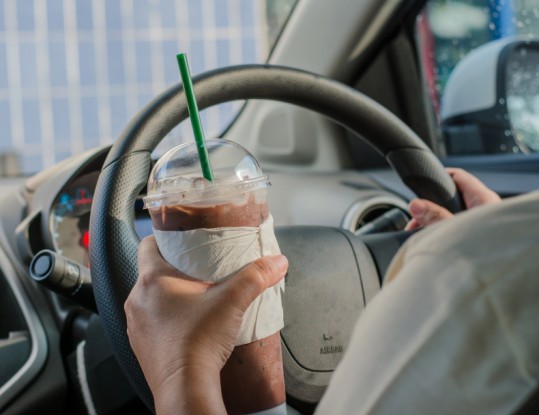Distracted Driving: More Than Just Texting

Distracted driving is the leading cause of traffic-related deaths in Ontario. In response to this disturbing statistic, Ontario enacted new “distracted driving” legislation in October, 2009. This legislation made it illegal for drivers to talk, text, dial, or email using a hand-held device. This includes cell phones, iPods, laptops, and DVD players.
But does the distracted driving legislation also ban other types of distracted driving? The short answer is no. However, other types of distracted driving could lead to heavy consequences.
Distracted driving can be defined as any activity that takes a driver’s attention away from driving. Therefore, distracted driving can include far more than just texting. The top five examples include:
•Eating and drinking;
•Talking to passengers;
•Grooming, such as applying make-up or checking appearance in a mirror;
•Using a navigation system; or
•Changing the radio.
While these sorts of activities would not lead to a charge under the distracted driving legislation, police officers retain a wide range of discretion when charging drivers who endanger the safety of others. For instance, a police officer could charge a driver with carelessness. This charge results in six demerit points, fines up to $2,000, and/or a jail term of six months. In some cases, the driver’s licence could be suspended for up to two years.
The consequences could even be more severe if the distracted driver causes serious injury or death to others. In those cases, police could charge the distracted driver criminally with dangerous driving, which carries a jail term of up to 10 years in the instance of bodily injury and 14 years in the instance of death.
While other types of distracted driving, such as eating or drinking, are not specifically prohibited under the new distracted driving legislation, common sense should prevail. The occasional sip of coffee is likely harmless as long as the driver keeps his/her attention on the road but let’s avoid “rolling up the rim” while driving. The consequences could be dire.
About the Authors

Liane is committed to representing individuals who have suffered serious personal injuries and to families who have suffered the losses of loved ones. Liane holds a Juris Doctor from the University of Windsor, where she received the Torkin Manes Cohen and Arbus award for combined academic achievement and service to the community, and the Charles J. Clark scholarship for academic excellence and involvement in community and volunteer activities. She was called to the bar in 2013.
